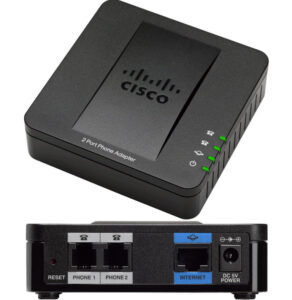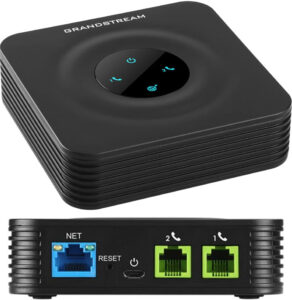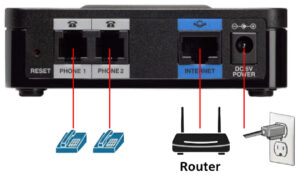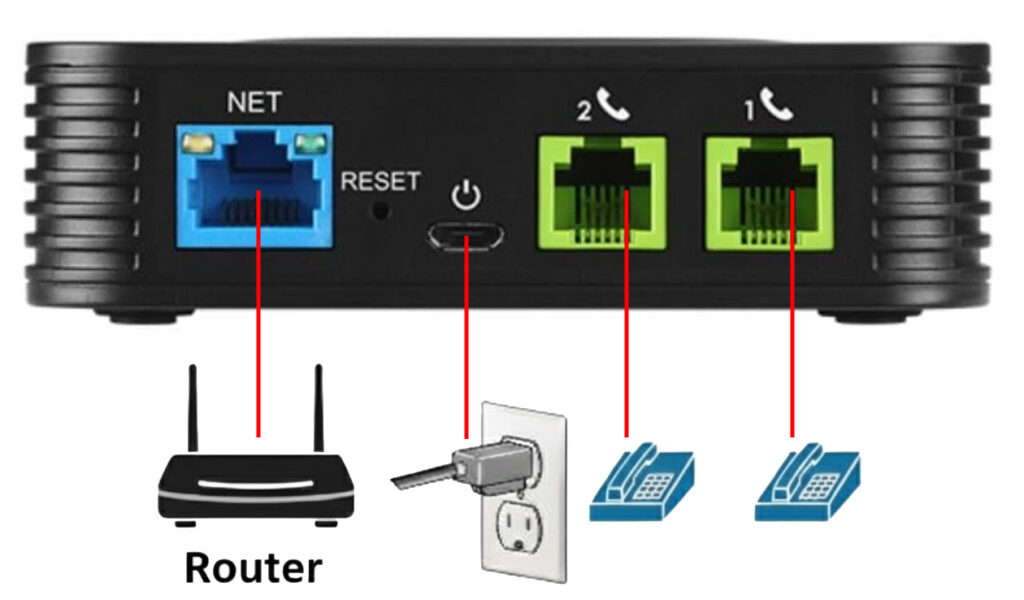FAQ
The following options are available for assistance:
DIGITAL ASSISTANCE
To access your customer area CLICK HERE
TELEPHONE ASSISTANCE
The telephone service is active on weekdays from 8:30 am to 9:30 pm for private customers and from 8:30 am to 7:30 pm for business customers.
For quality indicators, please refer to on the dedicated page
Frequently Asked Questions
If you experience a lack of connection, you can perform the following tests to understand the cause:
First step: Check if the antenna power supply is connected correctly.
Below are images of the antenna power supplies most commonly used by STEL. Once you've identified your power supply, click on it and check whether your system is connected in the same way. If not, connect it correctly and try connecting again after a few minutes.
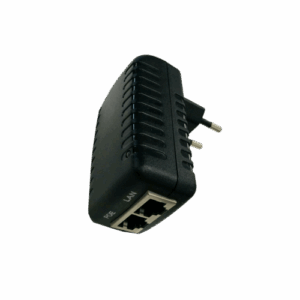 |
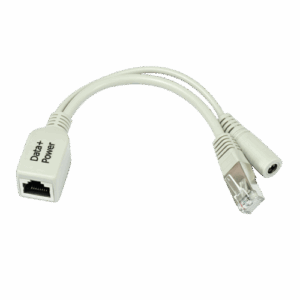 |
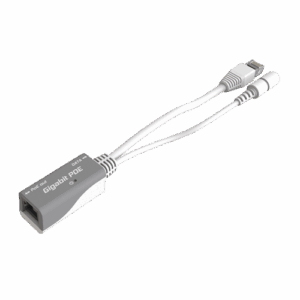 |
| POE MKT old model | POE MKT 100M | POE MKT 1G |
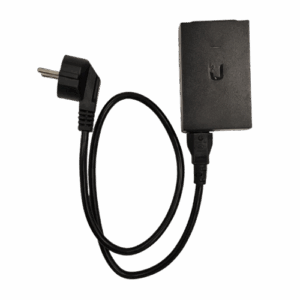 |
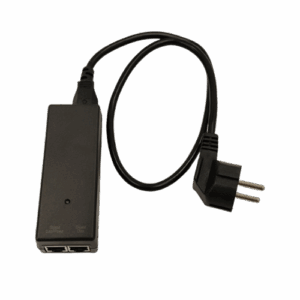 |
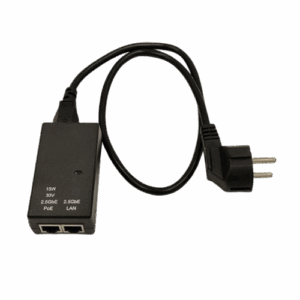 |
| POE UBNT | POE CMB | POE F300 |
If your system does not have any of the power supplies shown above, it may be a non-standard system, in which case we ask you to contact technical support.
Second ride: Check that the router is turned on. Make sure its power supply is plugged in and the Ethernet cable from the antenna power supply is properly connected and inserted into the network port. (If the router was supplied by STEL, if it's a Mikrotik brand, the cable should usually be plugged into the last network port, while if it's a TP-Link brand, the cable should be plugged into the WAN port.)
Do not press the RESET button on routers supplied by STEL.
Third step: Try unplugging the antenna power supply and the router power supply from the electrical outlet for about 15/20 minutes and once reconnected, wait a few minutes and then try connecting again.
If the problem persists after following all the steps above, please contact technical support.
In this case, please contact technical support as there could be multiple causes.
If you encounter speed problems, you can perform the following tests to understand the cause:
- If you encounter problems on a single device, check whether it also detects problems on other devices connected to the network to rule out a general problem.
Check if one or more of your network-connected devices are already using most of the available connection, which could be the cause of the slowdown. For example, you may be having trouble viewing a video on a phone or playing online on a console because two TVs are already connected to the network, both streaming video, and therefore not having enough available bandwidth. - If you experience a general problem, try disconnecting all your devices connected to the network, connecting a single PC via cable to the router provided by STEL and running a test on the following website: www.speedtest.net/it to check the maximum speed achievable at that time.
If you do not have a router supplied by STEL or you do not have a PC that can be connected via cable, try performing the test with a device connected via Wi-Fi.
If you continue to encounter problems, please contact technical support.
STEL provides a telephone service using the VoIP protocol, this solution works via an Internet connection.
A VoIP device will be provided on loan, pre-configured to operate the telephone line. You will need to connect an analog telephone to it. Alternatively, you can authenticate the telephone line using your own VoIP-compatible device.
Below are images of some of the VoIP devices supplied by STEL
To be used, the devices must be connected as shown in the example images below:
Meaning of the indicator symbols on VoIP devices:
| The light with this symbol next to it, if it is on, indicates that the device is powered. | |
| The light with this symbol next to it, if it is on, indicates the presence of an Internet signal. | |
| 1 The light with this symbol next to it, if lit, indicates that the telephone line is registered and active on telephone port number one on the back of the VoIP device | |
| 2 The light with this symbol next to it, if it is on, indicates that the telephone line is registered and active on telephone port number two on the back of the VoIP device |
Telephone line problems
If you encounter problems with your telephone line, you can follow these steps to understand the cause:
- Do not press the RESET button on your VoIP device, as this will erase its configuration. If you do, contact technical support.
- Please make sure your VoIP device is connected as shown in the previous images.
- Check that the power, Internet, and phone lights on your VoIP device are on. If they aren't, check that its power supply and the cable from the router are connected and inserted correctly.
- Please make sure that the phone cable connected to the VoIP device is inserted into the correct port and that the phone is turned on and working.
- Try turning the VoIP device off and on again by unplugging its power supply from the electrical outlet and after a few minutes reconnecting it to check if the problem has been resolved.
If the problem persists after performing the required tests, please contact technical support.
Access to the devices provided by STEL (antenna and/or router) will be blocked to the customer. For any changes to the device configurations, such as changing the network name and/or password, If you have Wi-Fi issues on your router, contact technical support.
Current STEL routers and extenders
| ROUTER POWER (Recommended for every profile) | |
| Wireless | – Wi-Fi 6 Dual Band – up to 574 Mbps at 2.4GHz (802.11b/g/n/ax) + up to 1201 Mbps at 5GHz (802.11a/n/ac/ax) – WPA/WPA2/WPA3 security |
| Interfaces | – 1 Gigabit WAN port – 3 Gigabit LAN ports – 1 FXS port – 1 USB 2.0 port |
| Telephony | – 1 VoIP line (8 VoIP phones in addition to the BC) |
| Characteristics | Dimensions: W 199.7 x D 148.6 x H 67.5 (mm) Power supply: external power supply 12V/1.5A Operating temperature: 0°C – 40°C Buttons: Power On/Off – Reset – Wi-Fi – WPS |
| EXTENDER POWER (Only usable with the ROUTER POWER) | |
| Wireless | – Wi-Fi 6 Dual Band – up to 574 Mbps at 2.4GHz (802.11b/g/n/ax) + up to 1201 Mbps at 5GHz (802.11a/n/ac/ax) – WPA/WPA2/WPA3 security |
| Interfaces | – 3 Gigabit LAN ports (1 port supports auto-sensing WAN/LAN) |
| Characteristics | Dimensions: W 100 x D 100 x H 89.5 (mm) Power supply: external 12V/1A power supply Operating temperature: 0°C – 40°C Buttons: Reset – WPS |
| ROUTER LITE (Advised (for profiles up to 30Mbps) | |
| Wireless | – Wi-Fi 5 Dual Band – up to 300 Mbps at 2.4GHz (802.11b/g/n) + up to 867 Mbps at 5GHz (802.11a/n/ac) – WPA/WPA2/WPA3 security |
| Interfaces | – 1 Gigabit WAN port – 3 Gigabit LAN ports |
| Characteristics | Dimensions: L 230 x D 144 x H 37 (mm) Power supply: external 12V/1A power supply Operating temperature: 0°C – 40°C Buttons: Wi-Fi/WPS |
| EXTENDER LITE (Only usable with the ROUTER LITE) | |
| Wireless | – Wi-Fi 5 Dual Band – up to 300 Mbps at 2.4GHz (802.11b/g/n) + up to 867 Mbps at 5GHz (802.11a/n/ac) – WPA/WPA2/WPA3 security |
| Interfaces | – 3 Gigabit LAN ports (1 port supports auto-sensing WAN/LAN) |
| Characteristics | Dimensions: W 100 x D 100 x H 89.5 (mm) Power supply: external 12V/1A power supply Operating temperature: 0℃ – 40℃ Buttons: Reset – WPS |











